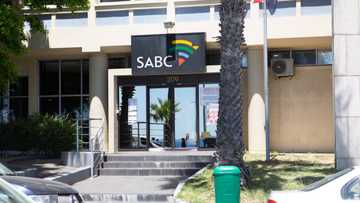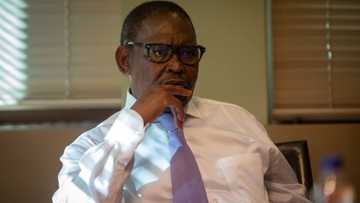SABC and SA Gov Make TV Licence Rescue Plan, Want To Eliminate, R17.7 Billion in Debt Needs To Be Recovered
- South Africa's TV licence debt totals R17.7 billion and can realistically never be recovered as individuals have large amounts in arrears
- The South African government and the SABC are working together to make a plan to eliminate the outstanding debt
- The plan will focus TV licence fees on the devices used to access public broadcasting and not solely on television owners
PAY ATTENTION: Click “See First” under the “Following” tab to see Briefly News on your News Feed!
JOHANNESBURG - 82% of South Africans are in arrears for TV licences, which has created a debt worth R17.7 billion. The South African government is working with the SABC on an amnesty plan to eliminate the outstanding debt.
The purpose of the amnesty plan is to accept that the debt will not be recovered and to write it off. There will also be an opportunity for new households to register for a TV licence.
Khumbudzo Ntshavheni, the minister of communications and digital technologies, said that individuals have TV licence debts that are too large to realistically expect them to be repaid. Ntshavheni said that the SABC and government are waiting for the National Treasury to approve the plan, News24 reports.

Source: Getty Images
Details of the amnesty plan
According to BusinessTech, debt is not only costing the SABC money due to outstanding fees, but also the cost of hiring debt collectors to follow up on those who default. A lack of back payments is predicted to increase the chances of South Africans paying licence fees moving forward.
PAY ATTENTION: Never miss breaking news – join Briefly News' Telegram channel!
Currently, a TV licence renewal costs R264 per annum or R28 a month. The proposed plan will move away from the current model and towards a general levy for accessing public broadcasting, no matter which device is used to do so.
People who own televisions are the only group paying TV licences at present, but the SABC and government have recognised that different devices, such as tablets and smartphones, are used to access television programmes.
“Therefore, the levy is linked to the public’s ability to access public broadcasting content rather than on the consumption of that content," the SABC told parliament in a presentation.
Reactions to SABC amnesty plan
@Mark81607413 believes:
"And I am pretty sure the majority of those who do pay don't even watch SABC."
@Theodore_Ntsane said:
"But it's not fair for customers who have never missed their payments they must be given reduction, it can't be that those who can't pay gets their debt written off."
@HJnel3 asked:
"Why must we pay TV licence fot low budget programs and help finance incompetent and corrupt structures?"
@HoneyBa39224328 shared:
"I stop watching TV for last 13 years. I have better things to do in my life than wasting on watching TV. TV doesn't rule my life or lifestyle."
SABC salaries will remain the same
Yesterday Briefly News reported that Mojaki Mosia, the head of Human Resources for the SABC, says that employees of the broadcaster will not receive salary increases and that this situation could last a minimum of three years due to money lost from corruption.
According to Mosia, the stagnant salaries have been included in the SABC budget for the year, as the company needs to break even before it can afford to give employees raises.
“There will be no salary increase for this financial cycle. I can confirm it has been implemented so that in the summary that the CFO has made it will save us almost R100 million in this financial year," Mosia said.
Source: Briefly News




